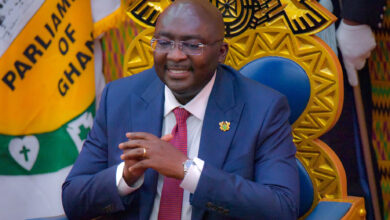2023 Budget: Government intensifies revenue mobilisation efforts to build back economy

Government through the 2023 Budget Statement and Economic Policy is seeking to intensify efforts at mobilising domestic revenues to help finance its transformative agenda and help build back the Ghanaian economy from the ravages of the COVID-19 pandemic and the adverse effects of the geopolitical tension between Russia and Ukraine.
Finance Minister, Ken Ofori-Atta made this known during the presentation of the 2023 Budget Statement and Economic Policy in Parliament on Thursday, November 23, 2022.
With dwindling revenue streams attributable to a slowdown in business activities occasioned by a global recession, Ghana is lagging behind most of its peers within the West African sub-region as far as tax to gross domestic product (GDP) is concerned. While Ghana is doing below 15%, countries in the sub-region like Cote d’ivoire and Nigeria are hovering around an average of 18%.
This, the minister in his budget presentation explained has led the government to expand the tax net and implement tax efficient measures to increase its revenue streams and shore up government finances.
One of such revenue measures he said is the introduction of a common platform for property rate administration to enhance property rate collection by all Metropolitan, Municipal and Districts Assemblies (MDAs) in the country.
He said property rates have the potential to increase revenue mobilization for MMDAs and release resources for the provision of basic infrastructure as well as the needs of the generality of Ghanaians at the local level.
Ofori-Atta also indicated government plans of increasing the Value Added Tax (VAT) by two and half percentage point. The VAT, which was last increased in 2014, coincidentally when Ghana was under a Fund programme will now be set at 15%.
Explaining the rationale behind the increment, the Finance Minister said this would enable the country to raise resources to build the economy back to its pre-COVID-19 levels as cost of borrowing to finance government expenditure has become increasingly expensive.





